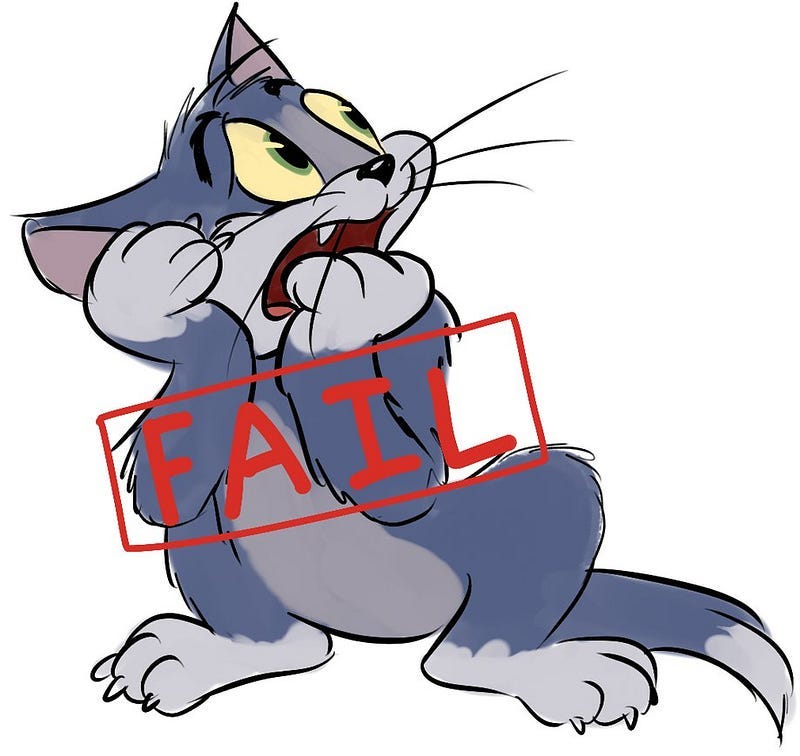40 reasons to crash a product
Your love your product more than your survival
Product launch
Your love your product more than your survival
My second business venture failed. I had shut down my first business, to focus on the second one (Build Your Community). It was a software service to help brands build their online communities. I looked for the reasons for the failure. One thing stood out. I kept ignoring the early signs of failure. Instead, I doubled down on building the next version with more features.
As per Investopedia: Data from the BLS shows that approximately 20% of new businesses fail during the first two years of being open, 45% during the first five years, and 65% during the first 10 years. Only 25% of new businesses make it to 15 years or more.
Mini MBA in Marketing’s latest module introduced us to the research of Joan Schneider and Julie Hall. Both researched hundreds of product launches. The top most reason for failure is lack of research. Businesses start without knowing about their customers and the market. Joan and Julie listed down 40 reasons for the failure.
In the interview to HBR, they said, “The biggest problem we’ve encountered is lack of preparation: Companies are focused on designing and manufacturing new products that they postpone the hard work of getting ready to market them until too late in the game.“
Top five flaws are:
Flaw 1: The company can’t support fast growth.
The Lesson: Have a plan to ramp up quickly if the product takes off.Flaw 2: The product falls short of claims and gets bashed.
The Lesson: Delay your launch until the product is really ready.Flaw 3: The new item exists in “product limbo.”
The Lesson: Test the product to make sure its differences will sway buyers.Flaw 4: The product defines a new category and requires substantial consumer education — but doesn’t get it.
The Lesson: If consumers can’t quickly grasp how to use your product, it’s toast.Flaw 5: The product is revolutionary, but there’s no market for it.
The Lesson: Don’t gloss over the basic questions “Who will buy this and at what price?”
CB Insights had also shared a list of reasons for failures. It focused on startups.
Top five reasons were:
Ran out of cash.
No market need.
Got outperformed.
Flawed business model.
Pricing cost issues.
Both, startups and small businesses meet the same fate. While developing the product, the businesses fall in love with the future success, forecasts and imaginary scenarios of people using their product. Instead of focusing on best-case scenarios, businesses should focus on the worst case scenarios.


